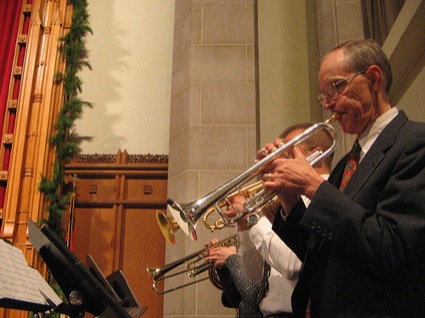At the end of Merton’s long passage on happiness and contentment:
Happiness consists in finding out precisely what the “one thing necessary” may be, in our lives, and in gladly relinquishing all the rest. For then, by a divine paradox, we find that everything else is given us together with the one thing we needed.
It is useless to try to make peace with ourselves by being pleased with everything we have done. In order to settle down in the quiet of our own being we must learn to be detached from the results of our own activity. We must withdraw ourselves, to some extent, from effects that are beyond our control and be content with the good will and the work that are the quiet expression of our inner life. We must be content to live without watching ourselves live, to work without expecting an immediate reward, to love without an instantaneous satisfaction, and to exist without any special recognition.
-Thomas Merton, No Man is an Island, Ch.7 Sec.3


